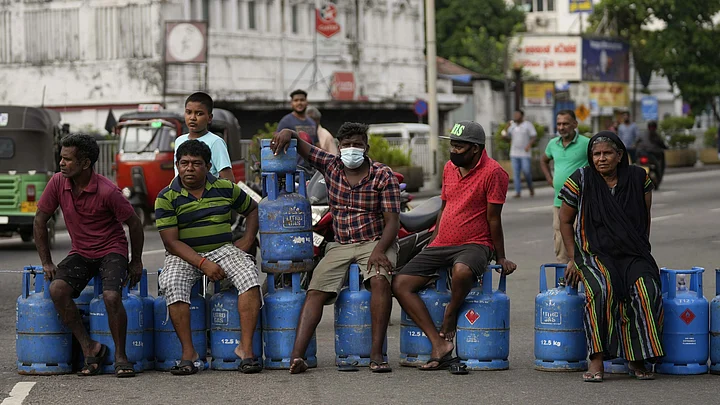A curfew was announced by Sri Lankan authorities across the country on Monday, 9 May, after a clash between pro- and anti-government protestors outside the office of President Gotabaya Rajapaksa, in which at least 23 people were injured.
Local media reported a police spokesman as saying that the curfew was imposed with immediate effect until further notice.
The violence occurred after reports of Prime Minister Mahinda Rajapaksa's likely resignation amid pressure on the embattled government to form an interim administration to tide over the economic and political chaos, PTI reported.
Government loyalists armed with sticks attacked the unarmed protestors who were camping outside the president's office since 9 April. Amid the chaos that ensued, a military contingent was sent in to aid local law enforcement officials.
The police fired tear gas and used water cannons at the pro-government groups, who crossed police lines and destroyed tents of anti-government protestors, as per AFP.
State of Emergency Declared
The Sri Lankan President had declared a state of emergency in the country from 7 May onwards, giving security forces sweeping powers amid anti-government protests. This marked the second time in five weeks that an emergency was declared in the country.
A spokesman for the president said that he had decided to invoke the tough laws to "ensure public order". This comes after trade unions staged a nationwide strike, demanding that the president resigns from his post amid the worsening economic conditions in the country.
The island nation has been going through an economic meltdown of a scale unseen since the country's financial crisis of 1948.
Prices of essential commodities like rice, milk, and oil have skyrocketed. resulting in massive nationwide protests ad political instability.
The main cause is the shortage of foreign currency, which has led to a huge reduction in imports of essential items like petroleum, food, paper, sugar, lentils, medicines, and transportation equipment.
(With inputs from AFP and PTI.)
(At The Quint, we question everything. Play an active role in shaping our journalism by becoming a member today.)
